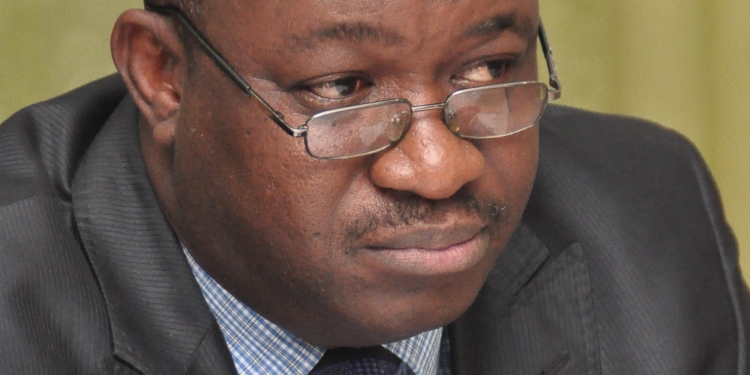Executive Director, Media Rights Agenda, Mr. Edetaen Ojo has said the passage of the anti-social media bill in Nigeria would restrict Nigerians from participating in the democratic governance of their country.
Edetaen Ojo in an interview with BONews Service explained that the social media has become a platform where Nigerians participate in public affairs and lend their voice to issues in the polity, adding that regulating it would be infringing on their rights.
The passage of the bill according to him, “will amount to a violation of the right to freedom of expression of Nigerians, which right includes the “freedom to seek, receive and impart information and ideas of all kinds, regardless of frontiers, either orally, in writing or in print, in the form of art, or through any other media of his choice” as per Article 19(2) of the International Covenant on Civil and Political Rights, ICCPR.
“It will also be restricting the rights of most Nigerians to participate in the democratic governance of their country as social media have become the principal way that most Nigerian participate in public debates and make their voices heard on governance issues,” he added.
Mr. Ojo, who mentioned that the Nigerian government is hiding behind fighting fake news and hate speech to legislate the social media bill, said “a genuine effort to protect populations from the harmful effect of hate speech does not require the regulation of social media specifically but the prohibition of hate speech, regardless of mode of communication.
He explained that, “one of the most effective ways of combating fake news, disinformation, misinformation and their negative effects, in my view, is through digital literacy and media literacy programmes so that those who are most vulnerable to these sorts of information are better equipped to evaluate information that they come across, navigate the online environment and protect themselves from harmful content.
“But the situation that Government has shown no interest in exploring media literacy or digital literacy as options and has made zero investment in them. While I do agree that hate speech is harmful and should be prohibited as required under international law, hate speech is not peculiar to social media. Hate speech exists regardless of platform and pre-dates social media.
“So a genuine effort to protect populations from the harmful effect of hate speech does not require the regulation of social media specifically but the prohibition of hate speech, regardless of mode of communication,” he added.
He buttressed his position with an illustration, saying, “we use knives for different purposes and every home in Nigeria has a knife, with some of them having multiple knives. This is despite the fact that knives are and can be dangerous. There are many cases where people have been killed or harmed with a knife.
“But no government official is suggesting that knives should be banned from homes or that there should be regulation of the use of knives or government supervision of the use of knives in homes and other places. But when you kill someone or harm someone, you can still be held accountable whether you used a knife, a gun, a broken bottle or some other dangerous weapon. And we are all satisfied, as far as I can tell, that the approach is sufficient to deal with that problem.
“But because the intention of those leading the charge to regulate social media is not really about hate speech or fake news or disinformation, they are unwilling to engage in any discussion about how to achieve the objective of protecting citizens from harmful content without depriving them of platforms through which they can engage political issues and hold government officials accountable.
“They are simply hell-bent on taking away these platforms from citizens or controlling the platforms to shield themselves from criticisms. That is unacceptable,” he added.
Speaking on self-censorship mechanism on social media platforms which reduces the spread of fake news, Mr. Ojo said, “there are different models of self-regulation of social media platforms. Some are better than others and some are more effective than others. There are certainly some which are reducing the spread of false news but I believe than more can still be done to address the challenges.
“If government is sincere about its real objective, then a multi-stakeholder approach in finding solutions to these challenges would be my preferred option.
“I am extremely concerned about any arrangement that makes Government the gate-keeper for people’s rights to freedom of expression.
“But I am equally concerned also about giving that responsibility exclusively to techies who are operating social media platforms or to private sector actors who own social media platforms.
“These groups can equally be blinded about the human rights issues because they are focused on the profit margin or by some other considerations,” he opined.

